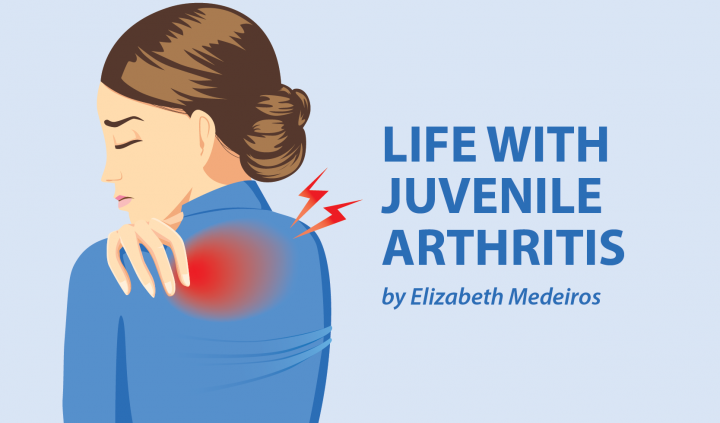I’ve always been called an old soul. Some people say it jokingly when they see me crocheting while listening to classic rock. But those who are close to me say that I’m wise beyond my years.
I know many others who grew up with juvenile arthritis (JA) and were told the same thing. I think it’s a little ironic: kids that have what is considered an “old person’s disease” being wise. But growing up with a chronic illness matures you in unexpected ways. While I’m not thankful for having JA, I am grateful for the lessons that I learned from it at a young age.
Empathy for others
I find it easy to empathize with others because of my experiences. I try my best to comfort those recovering from illness, dealing with depression, being bullied, or coping with a lifelong disease. I know that small gestures go a long way because I appreciated them when I was suffering.
I think that many young people with chronic illnesses have compassion and want to help others. Their desire to understand is a beautiful thing that should be nurtured. Parents, your gestures of help go far, whether it’s offering a ride to the local store or fundraising for a charity. Supporting your child in small and large ways encourages them to be thoughtful and caring.
You only need one good friend
Kids and teens can be cruel to one another, and bullying is a serious issue that many students face. Having a chronic, invisible illness can make fitting in harder for many reasons: frequent absences, needing accommodations, changes in one’s appearance, and disinterest in playing. Some kids put up with teasing from fake friends due to their fear of being excluded from activities with peers.
We’ve all heard the saying, “One good friend is worth more than 10 fake friends.” It’s true. Real friends don’t exclude their pals from activities due to their condition, pick on them, or cause pain for fun. I learned this when I was young, and I benefited from this painful lesson.
For starters, it made me want to be friends with those who were kind, not those who excluded others. When my mum witnessed a friend behaving in an admirable way, she made a point of acknowledging their gesture. I met my first real friends at JA camp — those kids understood what I was going through. Having a few good friends gave me the confidence to befriend my classmates and walk away from fake friends.
Patience is important
Everyone can benefit from practicing patience. But for kids with JA, patience is critical to maintaining a positive outlook. Treatments such as methotrexate or biologics don’t work right away; it can take weeks or even months for a medicine to be fully effective. And even then, improvement might be gradual.
It took me a while to learn to wait to see if a treatment was working. Sometimes, the side effects made me very impatient. But keeping a symptom calendar helped me to keep track of improvements over weeks and months and encouraged me to keep pushing forward.
Patience also came in handy during flares, when pain and fatigue make routine tasks incredibly difficult. I learned to be patient with myself by watching my parents practice patience, and from others who encouraged me to take my time.
Still just kids
The kids I met at JA camp were more mature than my school classmates. We were a group of old souls. Many of us felt more comfortable with adults than in the company of our peers. Being chronically ill made us grow up in some ways. But at the end of the day, we were still kids. My bunkmates and I stayed up late, giggling over boys. We took silly pictures together, tried on dresses, and experimented with makeup while getting ready for the camp dance.
Parents, you know that your child is going through a lot, and they sometimes feel lonely, discouraged, and depressed. Practice empathy and patience with them. Make sure they have time to be a kid and relax. Give them special treats every now and then, let them hang out with friends, and spend quality time as a family without talking about JA. The weight of JA can make kids grow up quickly, but parental support can help to relieve the burden.
***
Note: Juvenile Arthritis News is strictly a news and information website about the disease. It does not provide medical advice, diagnosis, or treatment. This content is not intended to be a substitute for professional medical advice, diagnosis, or treatment. Always seek the advice of your physician or other qualified health provider with any questions you may have regarding a medical condition. Never disregard professional medical advice or delay in seeking it because of something you have read on this website. The opinions expressed in this column are not those of Juvenile Arthritis News, or its parent company, BioNews Services, and are intended to spark discussion about issues pertaining to juvenile arthritis.

